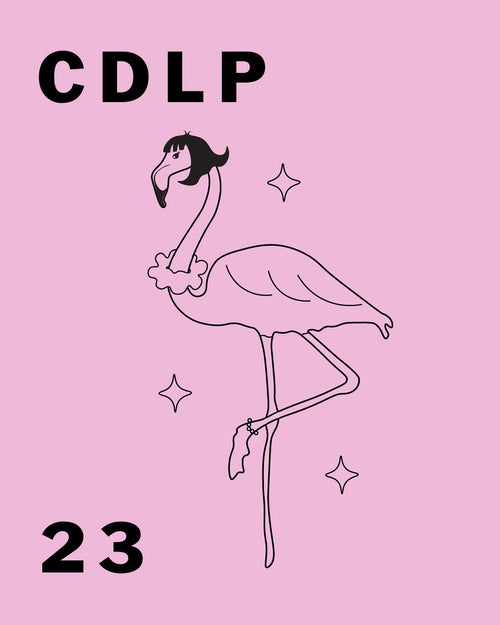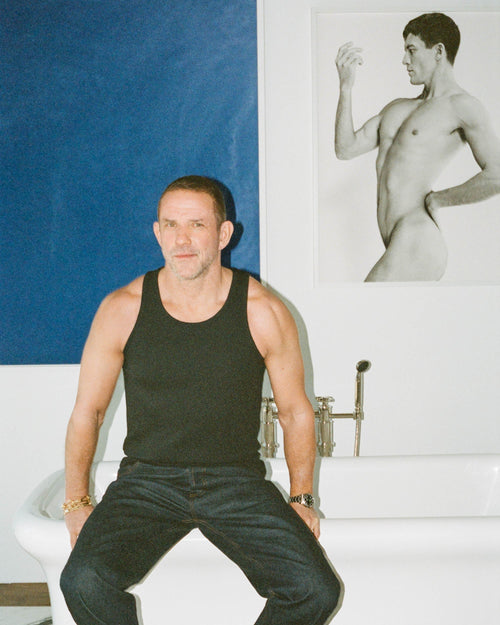
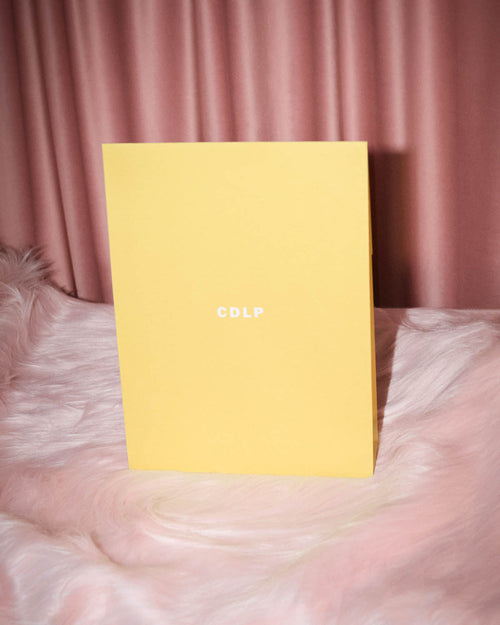

Gift Wrapping
Enhance your gifts with our gift bags constructed in FSC certified stock featuring our signature branding. Envelope style gift bag in FSC certified stock.
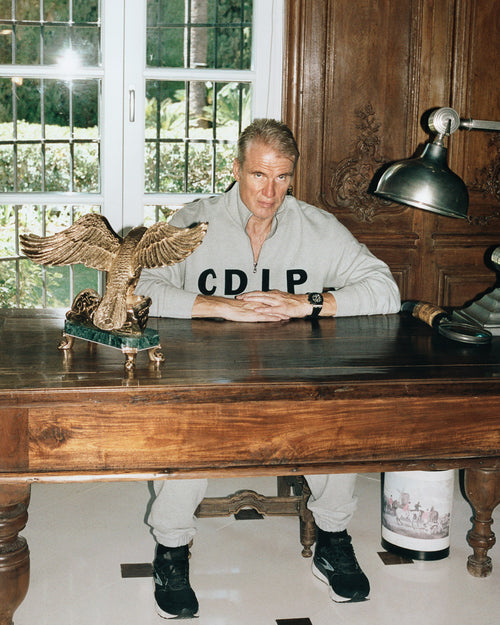
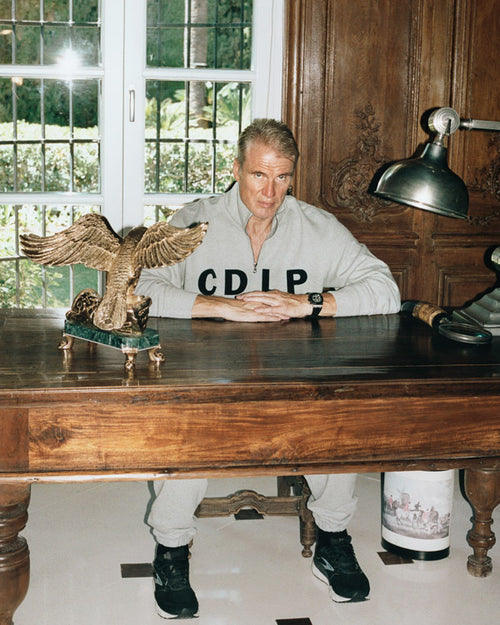
In-his-own-words, Dolph Lundgren is "actor, director, producer, martial artist, chemical engineer, and father of two beautiful daughters". Publicly, he is best known for his role as imposing Soviet boxer Ivan Drago in Rocky IV (1985). His physique, the Stallone franchise, and an intriguing stoicism captured a global audience. Behind the muscles and build was a young man who was coming into his own—identifying his character and values in a business characterized by ego. In and out of the ring, his stance was to stay grounded. Martial arts, a practice that he’d been religiously studying and mastering since his early teens, provided a foundation to face each day with integrity and purpose. Training today is more than his physical being; it’s about strengthening his body by way of the mind with laser-sharp focus and commitment to bettering himself. We sat down with Dolph at his villa Casa Amarillo in Spain, where he turns the needle introspectively to talk about resilience, philosophy, and rewriting the script that defined his alpha male on-screen persona.
CDLP: What you're describing now is a transformation, for you, but also a transformation of how to be a good man in general. Have you changed your idea about the definition of ‘good masculinity’? DL: It's a journey, and you learn things all the time. You know when you're 35 you think you're grown up, and then you realize that when you were 35 you were a kid. When you're 45 you think, oh no, I'm over 40, and then when you're 50, you realize, well, I could have done things differently. I was still kind of naïve. When you're dealing with people who are, you know, narcissistic, egotistical, and mean—they try to destroy you. They try to pull you into the dark side, to negativity. But I had to struggle within myself to always feel like I'm honest. I am respectful of people and do the right thing. I don't have to go to bed regretting something I'd done, or feeling guilty. You have to be in touch with your emotions. [Men] have this aggressive part of us that we’re always trying to assert ourselves, to make more money. A real man has to be emotional and in touch with oneself. A good man is reliable. A good man is by your side. Who would you want in a fox hole next to you when the enemy is about to attack? I want that guy. You don’t want him to run. You want him to help you, you want him to be tough, but caring and understanding. It’s a blend that in my view, all good men should have.
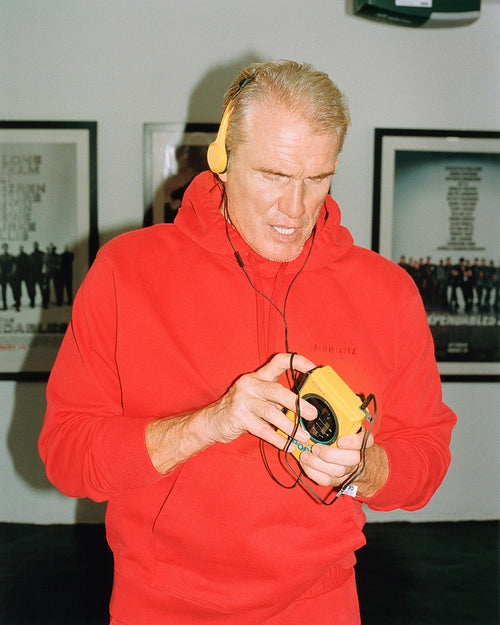
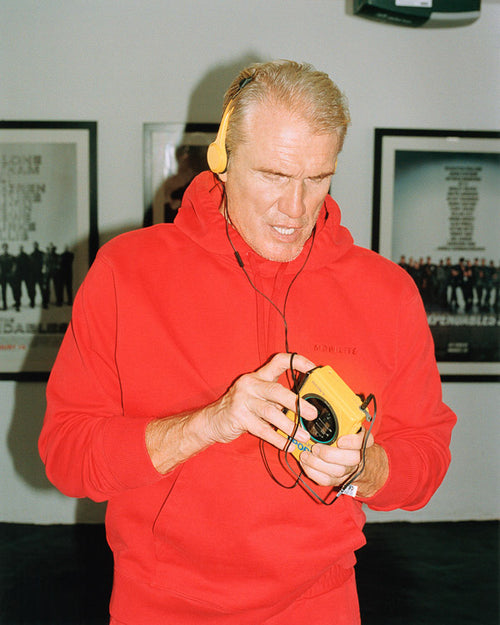
You work out continuously. How is that connected to your mind? Has your relationship between body and mind changed over the years? DL: Look, training is meditative and it's healing because I can relax and I don't have to think about business. I do it for myself to feel good. But what I've changed lately is I don't do it to prove anything anymore, really. Only up until five years ago I was still doing crazy stuff. Like trying to out lift somebody or try to spar with a young guy—to show off. Trying to live up to something. But now I don't feel I have to live up to it. I mean, I have to live up to it a little bit… But I don't punish myself as much as I used to. Which is a great feeling.Like they say, if you walk into a gym, 80% of the people lift with their ego… It's much better to lift from your mind… Lately that's what's happened to me. I use it to relax, to stay healthy, and to look good for the films. I don't have to overdo anything or to outdo anybody.
BALANCE CDLP:
So it’s not so much about being the best anymore? DL: I've been on this strange journey in my life because I've played the alpha male. Always about winning, about beating the opposition—winning the fight. Taking out the bad guys. Whatever it is. But, inside my journey was about trying to find myself, I didn't really realize that.. I was just going on in this fog. Film after film, and workout after workout. But it was really about trying to be happy and be relaxed, and feel like I love myself. I don't have to have the external world tell me so. But it comes from the inside. That took me a long time to figure out because for many years I didn't like myself at all. And I think that was really tough, for sure. CDLP: And how are you feeling now? DL: I feel very lucky that I pulled this off. I came from this little town in Sweden, Spånga, and then moved up north to this even smaller town… Amidst all the craziness of Studio 54, drinking, and partying, and movies... good movies, bad movies, really bad movies, really good movies. Somehow I came out of it sort of okay.


